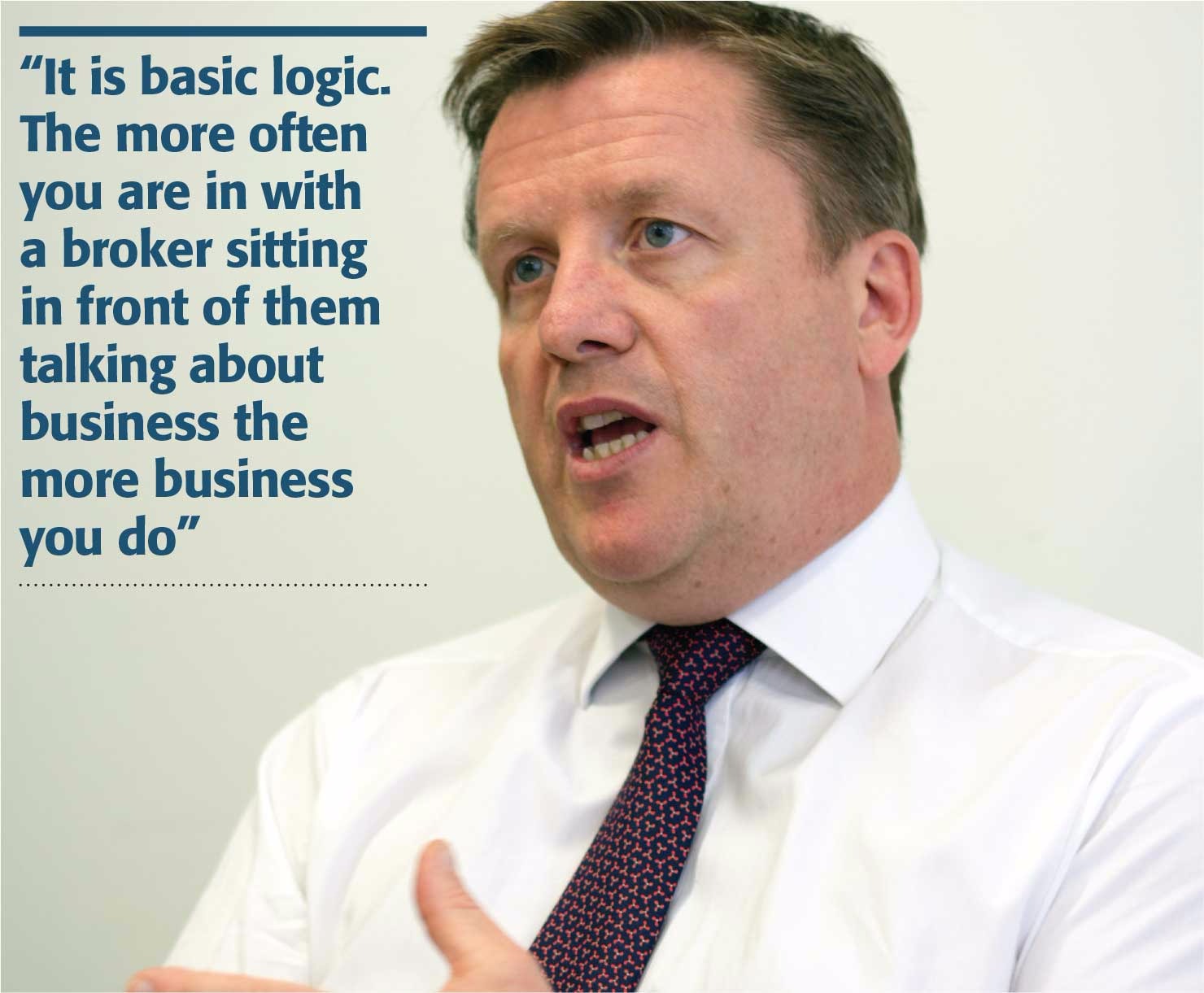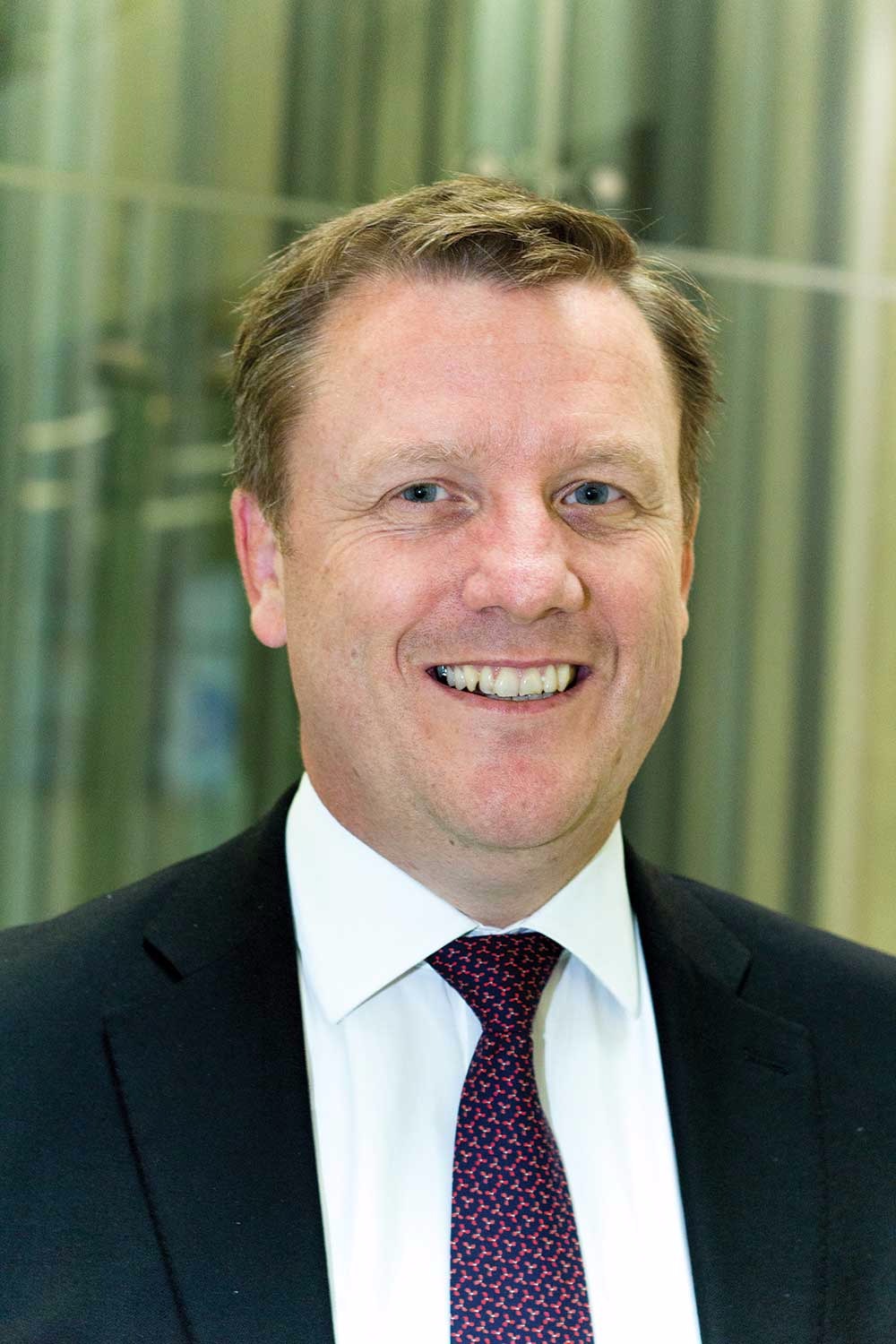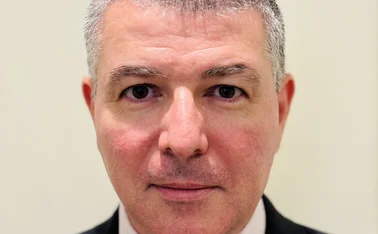
Profile: In the headlines

Newly promoted general manager of commercial and personal lines at Allianz UK Simon McGinn explains what the insurer’s new structure means for brokers
In the run-up to and aftermath of the Towergate takeover at the start of 2015 the firm was like catnip for journalists because there was an almost insatiable appetite for news among readers.
While traces remain, the effect has somewhat worn off. Allianz has stepped in to fill the gap in recent months. With each new development the desire for information has clearly grown. Online clicks have been off the scale for even the smallest development. However much of the news has been anything but small.
In February the provider posted a combined operating ratio of 102.6% for 2015 – its first the wrong side of the 100 line for more than 13 years or 53 quarters to be exact. It was a track record that was the envy of its peers and was one of which the company was justifiably proud.
Just two months later Allianz announced that it was creating a new single trading division combining commercial and personal lines. Simon McGinn was promoted from general manager of Allianz Commercial to lead the new unit.
Changes afoot
As to the new shape of head office McGinn says he understands the level of interest the decision has fomented. “It is the first time in 12 to 13 years that we have changed the management board structure and the immediate strategic head office functions but we have been evolving the commercial and personal lines business month on month for years,” he details. “In one sense the business is very used to a lot of change.”
At the same time the insurer set out a proposal to pull out of direct personal lines business which has put 170 jobs at risk. The company, which is currently in a consultation period, has been clear about the priority of looking after those affected as best it can. Brokers likewise have expressed support for the staff. However they have also been intrigued by the strategic development expressing the hope that Allianz will increase its efforts on home and motor in their channel.

“I think brokers have been very supportive,” he tells Insurance Age. “I sense a level of excitement that we may be able to bring something more to the party particularly in personal lines than we have been able to do for some time.”
Accepting that the company no longer has the diversion of investing in trying to grow a direct business he argues that the broker channel has not been “denuded of investment over the last two to three years”.
Adding: “But perhaps they have had less than they would ideally have wanted,” and commits the insurer to bringing more resource to its relationships.
In its first quarter results Allianz reported gross written premium of £547.3m with £79m coming in personal lines through brokers. Given that size, just how much attention will it merit?
“A lot,” counters McGinn. “It is the bit we need to prove ourselves in. There is a danger if we don’t get it right that we undermine ourselves in the commercial broker space.”
He accepts that for motor and home business the company is yet to get to the stage where it has a reputation for consistency of approach in underwriting, something which he says it is well regarded for “everywhere else”.
“We are in good shape and making steps towards it but we are not there,” he continues. “It will get a lot of attention because the opportunity is big.” McGinn envisages a future that recognises the role the broker plays in the transaction and says Allianz will be designing better customer propositions.
“Brokers are there when the client needs them to answer questions and increasingly people are looking for something more than just being able to go on a website.” He lists data enrichment, digital solutions, bespoke products with wider wordings and cover in a price proximate manner as among the ways the insurer will succeed.
Clearly, commercial lines will also remain a key priority. After a three digit COR in 2015 the insurer bounced back with 89.8% in commercial lines for the first quarter of this year. “It is a good start to the year, the best since I have been responsible for the business,” reports McGinn.
He laughs at the query of whether personal lines – which came in at 101.2% – will be achieving such a feat anytime soon. If, as expected, the insurer stops writing direct policies it will cease accepting new business after 30 June and not invite renewals after 31 July. This means there will be a lag of around 18 months in the figures.
“Is the general trend moving in the right direction?” he asks. “Yes.”
While there is work to do and bits to fix he would be surprised if in 18 months the COR was not below 100. “In that timescale we would be getting it into the 90s and good chunks of the business are already there.”

The beginning
McGinn started in insurance as a graduate trainee at Commercial Union (CU) in 1992 and within 18 months became an account executive looking after brokers.
After progressing through a variety of roles he asked to work in operations. Just two weeks later, in 1998, the merger with General Accident was announced. This event, combined with the subsequent merger of CGU and Norwich Union in 2000, gave him a perspective on project work and the chance to work on integration.
“I looked after the whole of the South East of England for Norwich Union at that time and was managing closing down operations and the conversion centre,” he remembers.
There were 400 redundancies to oversee in his area. “Our philosophy was that we wanted to treat people well so that if we ever bumped into them in the street we could look them in the eye and say ‘we did the best we could for you’.” Adding: “You learn how to lead in difficult situations like that.”
A brief four month stint in New Zealand followed where he reported to the board of NZI, which had been bought by General Accident in 1989, and advised on the company’s restructuring. When he headed back to the UK he asked to work in finance and was put in charge of credit control.
And so in 2001 he became director of central collections. It sounds like a job for a debt collector and indeed McGinn did experience going out knocking on doors as he got an overview of the whole payment chain.
That experience aside he was office based. “We had enormous amounts of money that had either been paid by brokers to the company that we couldn’t match or that hadn’t been paid. It wasn’t to do with the broker it was the typical merger scenario,” McGinn describes.
“Everyone was focused on the front-end bit and no one was thinking about the back-end bit and how we collect the money. It was a lot of sorting out and administration.”
McGinn acknowledges that the role does not sound the most exciting but stresses he enjoyed it. Then in 2004 came a seismic change: “At the end the role was made redundant.”
He is philosophical about what drove him to go down the redundancy route despite there being other options available. “I had been reasonably lucky in my career at that time. I got to a senior director title at the age of 30. I had almost got it a bit wrong in the sense that I thought I had made it.”
The realisation that what he needed to do was refocus and challenge himself combined with a desire to return to the trading environment made Allianz a natural choice: “I fancied a go at being in a company where you could build and grow. That was the big motivation for me.”
Starting from scratch
Compared to the behemoth of Norwich Union it was like starting from scratch for McGinn as he assumed the role of director of trading for the North and Midlands reporting to Chris Hanks under the overall leadership of Andrew Torrance.
Those who know the company well now will probably not be surprised by the culture he discovered upon his arrival all those years ago.
“It was discipline about your numbers and understanding your profit and loss account. It was real attention to detail around the technical aspects of insurance.” The mantra then as now was consistency: “It takes a long time to build that reputation. It is hard won and relatively speaking easily lost.”
Praising the work of Torrance and Hanks in particular McGinn recalls: “A focus on profit first and growth second. If you deliver good service and underwriting consistency then the growth follows.”
After four years in the post he was promoted to director of commercial broker markets. When the recession hit he learnt even more about the firm. “We went through a bad patch in 2010-11 when we got our casualty book wrong and that caused us some real problems,” he opens up. “We could see that in 18 months’ time, given the way the book was trending, we were going to be posting not very nice results relative to where we had been.”
The insurer took action on rating and knew it had to forgo top-line growth. In his view the key is to take action in the manner of a scalpel rather than a blunt axe. “If you put blanket rate increases across then all your good business walks and all your bad business stays. You haven’t fixed the problem.”
Another promotion in 2013 followed as he became general manager for Allianz Commercial UK. In 2014 the goal was to be the biggest insurer by underwriting profit by 2019. After that blip in 2015 how is the process going? “We are probably going to take a bit longer than the original objective,” McGinn confesses. “I haven’t given up yet.”
McGinn on broker visits

▶ In 2014 McGinn stated that the insurer needed to meet-up with brokers more.
“In my view there are still not enough broker visits,” he says. “From 2014 to now we know that we have more than doubled the number of broker visits we make in a year in commercial.”
He predicts a further increase of 20% in the next 12 months.
“It is basic logic. The more often you are in with a broker sitting in front of them talking about business the more business you do.”
He explains that face-to-face meetings help the two parties find solutions to problems. “To my mind we invest more than anyone else in the training and competence of our staff. That investment needs to come to fruition when people are sat across the table trying to do business together.”
So how will the increase be achieved?
“We set a number and I bang on about it every week,” is part of the solution. “We don’t beat people up. We just say ‘come on that’s the number, it is not unreasonable, why aren’t we doing it?’”
In addition the insurer is freeing up people to get out of the office by addressing its internal processes. And he notes that Allianz has given its staff more reasons for having meetings by refreshing six product areas particularly for mid-corporate business.
“We have got a branch network. If you just do everything by telephone and email you could be anywhere.
“You have got to get the value out of your infrastructure and I do think it makes a difference.”
Smart business
He has of course since been charged with leading the new combined trading unit. Clearly energised by the new role he sets out his style as being of a collegiate organiser.
“There are a huge amount of really smart people that operate in Allianz and the industry as a whole. For me it is about how you put those smart people together rather than having all the ideas yourself.
“I’d like to think I have a reasonable modicum of intelligence. But what I know is I don’t have all the answers. I have an opinion on everything.”
The announcement by Allianz of the roles and responsibilities (see page 14) for the management team that will report to McGinn was another example of unprecedented broker interest. McGinn certainly trusts his team. He stresses that he is more than capable of issuing a decision when agreement cannot be reached. But his approach to the art of management can be boiled down to preferring to listen and build a consensus. He describes it as authorising his colleagues.
“This means giving people permission to go and run the business,” he explains. “We give people quite high degrees of autonomy in terms of running their branch or area of business because we hold them accountable.”
One of the challenges that McGinn is keen to face is digitising the insurer and keeping it able to compete in the new online world. What he won’t be doing is buying in business through raised commissions. Growth though is firmly on the agenda. And it will be delivered by teamwork, both within Allianz and between the insurer and its broker partners.
He concludes with an analogy to rugby, a sport he played from the age of four until rupturing his cruciate ligament 16 years ago. He continued to be involved with the game until this May by coaching a local team as it moved over the years from the under six to the sixteen age group.
Indeed rugby was the reason he ended up in insurance. He had offers for the graduate trainee schemes from Majestic Wine and CU. “The reason I chose CU was at Majestic Wine I would have had to work on Saturdays which would have meant I couldn’t play rugby.”
According to him insurance is a great industry that combines a need for intellect and understanding of technical aspects with a need to get on with people.
“It is like a rugby team. Whether you are big or small, tall or short, fat or thin, then on a rugby field there is a role that you can play as part of the team.
“At insurers, if you stretch the analogy a bit, whatever your skill set there is a role for you somewhere to play a big part of the team.”
Only users who have a paid subscription or are part of a corporate subscription are able to print or copy content.
To access these options, along with all other subscription benefits, please contact info@insuranceage.co.uk or view our subscription options here: https://subscriptions.insuranceage.co.uk/subscribe
You are currently unable to print this content. Please contact info@insuranceage.co.uk to find out more.
You are currently unable to copy this content. Please contact info@insuranceage.co.uk to find out more.
Copyright Infopro Digital Limited. All rights reserved.
As outlined in our terms and conditions, https://www.infopro-digital.com/terms-and-conditions/subscriptions/ (point 2.4), printing is limited to a single copy.
If you would like to purchase additional rights please email info@insuranceage.co.uk
Copyright Infopro Digital Limited. All rights reserved.
You may share this content using our article tools. As outlined in our terms and conditions, https://www.infopro-digital.com/terms-and-conditions/subscriptions/ (clause 2.4), an Authorised User may only make one copy of the materials for their own personal use. You must also comply with the restrictions in clause 2.5.
If you would like to purchase additional rights please email info@insuranceage.co.uk







